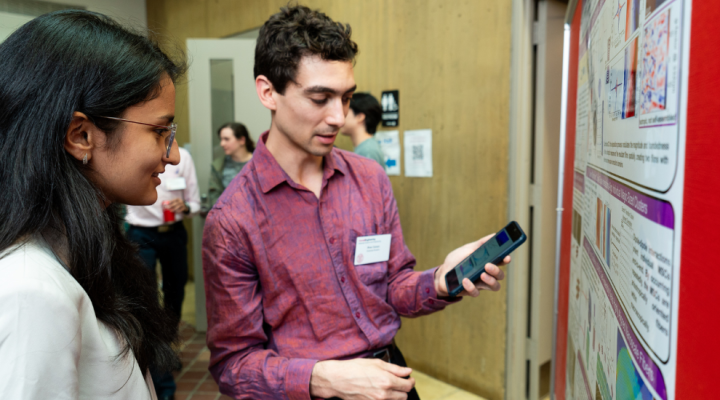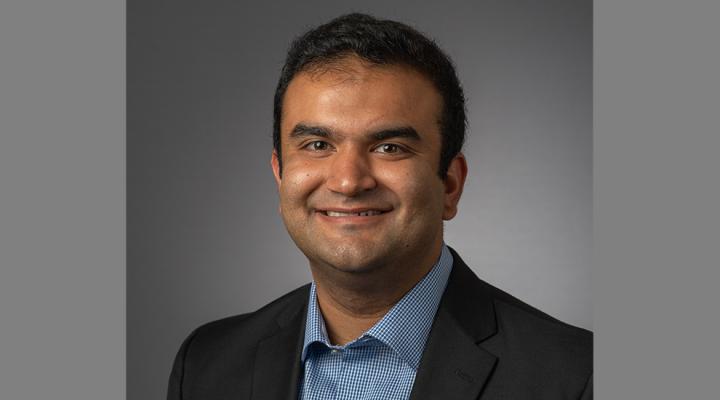Hengyu Zhou, M.S. '19; graduate student Konrad Hedderick; former postdoc Netta Vidavsky; and MSE Chair Lara Estroff at the 2018 GRC held in New Hampshire.
For MSE graduate student Konrad Hedderick, the Biomineralization Gordon Research Seminar taking place Aug. 13-14 in Spain has been a long time in the making.
The seminar is the premier forum organized by and for graduate students and postdocs during the Gordon Research Conference on Biomineralization, which was last held in 2018. That’s when Hedderick was selected as the seminar’s 2020 co-chair, a commitment that includes developing the event’s theme, inviting keynote speakers, selecting presenters, and fundraising.
After two years of planning, and just as Hedderick was finalizing the program, the conference was canceled due to the pandemic. But that didn’t deter Hedderick, who organized a new program for the 2022 seminar.
Hedderick said being selected for the responsibility was an honor, and one that would have been more daunting if not for his MSE colleagues.
“What helped is that the lab I’m in has a lot of experience, and so I knew I would have a lot of support,” said Hedderick, who is advised by MSE Director Lara Estroff. “That's what empowered me to run for it because I knew that I would have a lot of support and a lot of knowledge behind me that I could use.”
Aside from some of the last-minute details, the seminar planning is complete, and Hedderick said he is excited for it to begin. This year’s theme is “A Multifaceted Approach Toward Understanding Biomineral Formation Pathways and Purposes,” with presentations addressing topics such as formation mechanisms, biomolecular-biomineral interactions, biomechanics and bio-inspired materials, and their applications.
Dr. Peter Fratzl of the Max Planck Institute of Colloids and Interfaces will give the keynote "Towards an Understanding of Mineralization Logistics in Forming Bone,” and on day two Dr. Tanya Prozorov of the Ames National Laboratory will give the keynote “DeBUGing the Nature, or Magnetotactic Bacteria as a Model System for Imaging of Biomineralization Processes.”
“We really wanted to focus on in vivo, in vitro, in situ and in silico methodologies,” Hedderick said, “That’s a big thing right now in biomineralization, really capturing the science as it's happening and in its natural environment.”
The theme was partly inspired by work being done in the Estroff Research Group, including Hedderick’s own research on bio-informed design rules for metal ion-polymer coacervate templating, specifically studying the design rules behind how single-celled algae make calcium carbonate, with potential applications for engineering functional materials.
The conference and seminar are traditionally held in the U.S., but with this year’s event being hosted outside of Barcelona, Spain, Hedderick said it will be an opportunity to draw different researchers who may not have been able to attend in the past.
For more information, visit the 2022 Biomineralization Gordon Research Seminar website.




